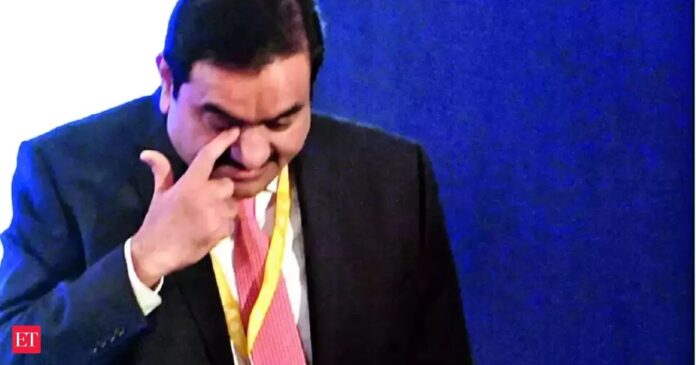On November 20, 2023, US federal prosecutors made headlines by indicting top functionaries of the Adani Group on charges of graft and fraud related to a renewable energy project in India. This significant legal action has sent shockwaves through the business community, particularly in India, where the Adani Group is one of the largest and most influential private sector conglomerates. The company has vehemently denied the allegations and has pledged to utilize every legal avenue available to clear its name, particularly concerning its green energy subsidiary, Adani Green.
### Implications for India’s Global Profile
Regardless of the merits of the case against the Adani Group, the repercussions for India’s global standing are profound. The indictment raises serious questions about the integrity of the Indian private sector, potentially undermining the achievements of India’s strategic goals on the international stage. The fallout was immediate; French oil giant TotalEnergies announced it would cease financial contributions to its investments in the Adani Group. Furthermore, Kenyan President William Ruto publicly rescinded a significant contract involving the renovation and operationalization of Nairobi’s Jomo Kenyatta International Airport, alongside a $736 million partnership with the Kenyan energy ministry for power transmission lines.
### Reassessment of International Partnerships
The implications of the indictment extend beyond immediate financial concerns. The US International Development Finance Corporation (DFC) has reinitiated due diligence on its partnership with the Adani Group for the redevelopment of the Colombo port in Sri Lanka. Similarly, the caretaker government in Bangladesh, led by Mohammad Yunus, has announced a review of Adani’s energy generation contracts, which span from 2009 to 2024 and total 5 GW. These developments signal a growing hesitance among nations to engage with the Adani Group, raising alarms about the future of India’s international infrastructure projects.
### The Broader Geopolitical Context
The Adani Group’s involvement in various overseas projects—including power, infrastructure, and port development in countries such as Tanzania, Israel, Greece, Indonesia, Nepal, Vietnam, and Australia—positions it as a key player in India’s connectivity ambitions across South Asia, Africa, and the Indo-Pacific. These initiatives align with India’s foreign policy strategies, such as ‘Neighbourhood First,’ ‘Free, Open and Inclusive Indo-Pacific,’ and ‘Act East,’ which aim to enhance regional connectivity and economic development.
India’s approach to international development is characterized by a commitment to sustainable, affordable, and resilient infrastructure that supports economic growth and enhances supply chain resilience. Unlike China’s Belt and Road Initiative (BRI), which has been criticized for its predatory practices and financial pitfalls, India’s partnerships are designed to respect sovereignty and promote local ownership. However, the recent indictment of the Adani Group threatens to undermine these efforts, as countries reconsider their partnerships with India.
### Challenges to India’s Connectivity Strategy
As the primary private infrastructure player representing India on the global stage, the Adani Group’s legal troubles could have cascading effects on India’s connectivity strategy. Countries like Kenya, Bangladesh, and Sri Lanka are already reassessing their collaborations, and others, including Greece, Australia, and Tanzania, may follow suit. This trend poses a significant challenge to India’s efforts to establish itself as a reliable development partner, particularly in the face of China’s expanding influence through the BRI.
The indictment also raises concerns about the potential impact on India-US bilateral relations and the emerging partnerships among Quad countries in the Indo-Pacific Oceans Initiative (IPOI). India’s credibility as a development partner is now under scrutiny, presenting a significant obstacle to its global connectivity ambitions.
### The Need for a Diversified Private Sector
This incident highlights a larger structural issue: the limited involvement of the Indian private sector in international development and connectivity initiatives. The reluctance of many Indian companies to engage in overseas projects has left New Delhi reliant on a small number of players, such as the Adani Group. When challenges arise, it is not just the companies that suffer; India’s foreign policy and global positioning are also adversely affected.
To address these challenges, it is crucial for the Indian private sector to step up and diversify its involvement in international development. India’s strategic ambitions are too vast to be supported by a handful of stakeholders. A more robust and diversified private sector is essential for India to realize its global aspirations and effectively counterbalance China’s growing influence.
### Conclusion
The indictment of the Adani Group serves as a wake-up call for India’s private sector and its strategic ambitions on the global stage. As the country seeks to enhance its connectivity and development outreach, it must foster a more diverse and resilient private sector that can rise to the challenges of international engagement. Only then can India hope to solidify its position as a credible development partner and a key player in the evolving geopolitical landscape.

